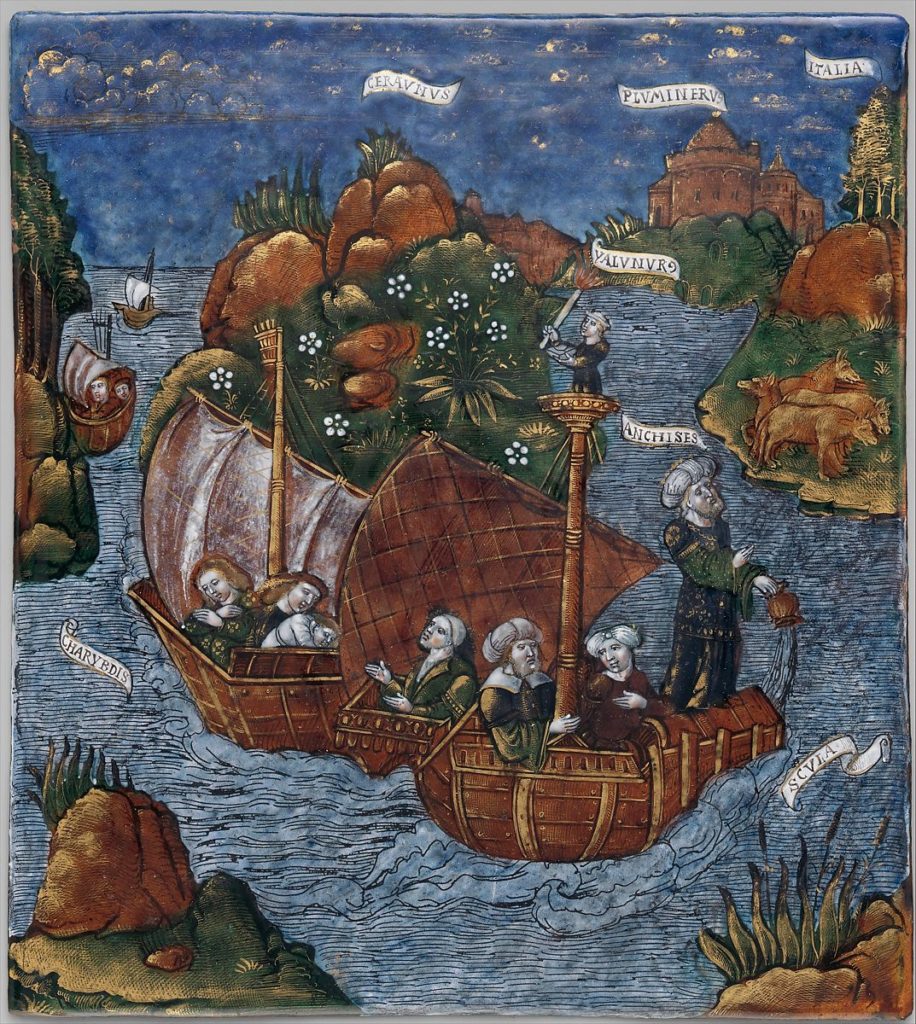Wednesday
My Dante Discussion Group, which has morphed into a Virgil Discussion Group now that we’ve completed the Divine Comedy, encountered an Aeneid passage we agreed has interesting implications for declining world powers, including the United States. Aeneas, knowing that he destined to found a new empire but unsure where it is to be, momentarily thinks that Epirus on the Balkan Peninsula may be the place. Group member Ross McDonald, Sewanee’s British Renaissance scholar who is leading our discussions, says this is a particularly treacherous temptation.
It’s treacherous because it seems too easy. In an ironic reversal, Achilles’s brutal son, whom previously we have seen kill Priam and other Trojan nobles, has been killed and his kingdom has ended up in the hands of two Trojans, Priam’s son Helenus and Andromache, formerly Hector’s wife and then Pyrrhus’s slave. Aeneas has but to join his forces with them and, voila, he has his new Troy. It even looks like the old Troy, as Aeneas discovers when Helenus takes him around:
Walking along with him
I saw before me Troy in miniature,
A slender copy of our massive tower,
A dry brooklet named Xanthus…and I pressed
My body against a Scaean Gate. Those with me
Feasted their eyes on this, our kinsmen’s town.
Andromache, meanwhile, appears to be spending all her efforts to maintain a mausoleum to her dead husband. Ross made the point that her seeing Aeneas as a ghost has truth to it: he is a ghost until he steps into his new destiny.
The Trojans attempting to “make Troy great again” involves looking only back, not forward. Once one does so, one comes up with no more than a pale imitation—a “slender copy” of a once massive tower, a “dry brooklet” instead of a mighty river, a replica of Troy’s fabled Scaean Gate. Aeneas cannot recreate past glory but must step into an entirely new vision, one that will surpass Troy and Greece both. In other words, Aeneas must venture out once more upon the seas, even though he knows the challenges before him are considerable.
Empires that decline are those that cling to past glory rather than imagining ways to renew themselves. Russia, whose revolution one inspired people around the world, is increasingly becoming a parasitic nation run by kleptocrats, with a leader who poisons opponents, trolls western democracies, bolsters autocrats and harbors computer hackers. Britain, nostalgically thinking it would stand tall again if it broke free from Europe, has only diminished itself in the process. America, ignoring its immigrant history, thought under Trump that it could roll back the years if it shut down its borders to keep new immigrants out. Nations shackled to their past become only slender copies and dry brooklets of what they once were.
Aeneas, by contrast, lets the wind belly out the canvas of sails (to use one of Virgil’s descriptions) and sails into an uncertain future. “Come my friends,” I imagine him saying in the words of his inveterate enemy Ulysses (as envisioned by Tennyson), “’T is not too late to seek a newer world.” Or in Shelley’s words (in Hellas), “The world is weary of the past,/ Oh, might it die or rest at last!”
Only, like the United States, the past doesn’t have to die entirely. Aeneas has a firm foundation upon which to build: the memory of a once vibrant city assures him that such entities can be raised again. The United States, meanwhile, has the Declaration of Independence and The Constitution, documents that have provided hope and inspiration even to those America originally tried to exclude.
In other words, follow Aeneas’s lead.
